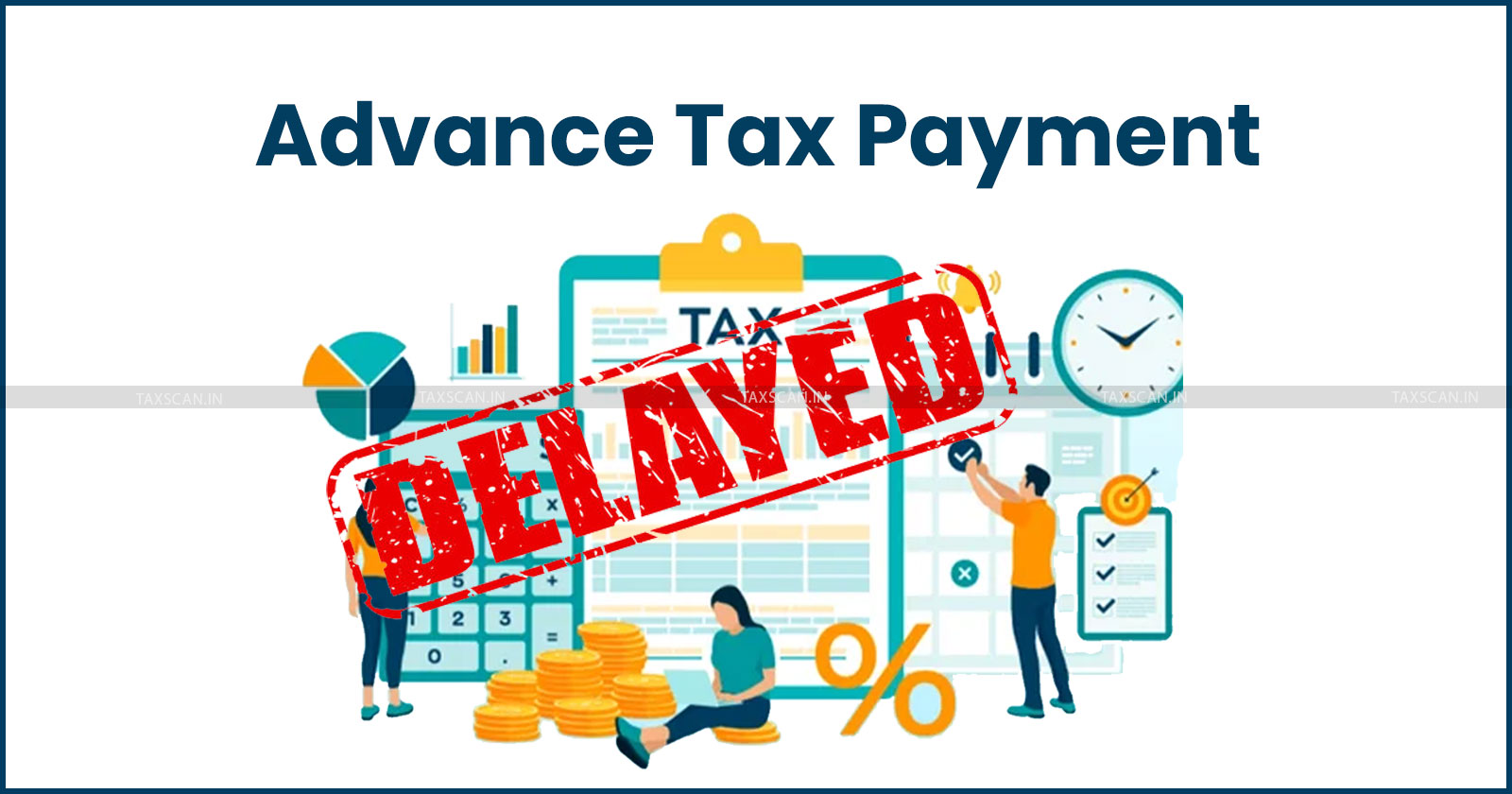Taxpayer Liable for Interest u/s 234B due to Delayed Advance Tax Payment, Despite Seeking Adjustment of Seized Cash against Tax Liability: Chandigarh HC [Read Order]
The revenue correctly adjusted the seized cash from the date of the assessment and rightly charged interest under Section 234B for the delay in payment.

Taxpayer – Advance Tax Payment – Tax Liability – Taxpayer Liable – Taxpayer Liable for Interest – Tax Payment – Chandigarh HC – chandigarh high court on Delayed Advance Tax Payment – chandigarh hc news – taxscan
Taxpayer – Advance Tax Payment – Tax Liability – Taxpayer Liable – Taxpayer Liable for Interest – Tax Payment – Chandigarh HC – chandigarh high court on Delayed Advance Tax Payment – chandigarh hc news – taxscan
The Chandigarh High Court ruled that the taxpayer is liable for interest under Section 234B due to delayed advance tax payment, despite their request to adjust the seized cash against their tax liability, as the revenue correctly adjusted the seized cash from the date of the assessment and rightly charged interest under Section 234B of the Income Tax Act, 1961, for the delay in payment.
On July 17, 2007, the revenue conducted searches at various premises associated with the appellants, an individual named Sarup Chand. During the search, it was discovered that Sarup Chand held two savings accounts with Standard Chartered Bank, where a sum of Rs. 43,78,272 was deposited. Sunil Mehta, under Section 132(4) of the Income Tax Act, 1961, admitted that the funds in Sarup Chand's account belonged to his family members, originating from the sale of a house in Amritsar, owned by Smt. Kamla Mehta and Smt. Shelly Mehta. At the time of the search, Sarup Chand was at his native village.
Join Our In-Depth Webinar: Clause-by-Clause Analysis of Audit Forms!
The Revenue seized the amount from Sarup Chand's bank account, transferring it to their account. An affidavit dated August 3, 2007, by Sarup Chand confirmed that the funds belonged to Sunil Mehta's family members. This was followed by a letter dated February 15, 2008, requesting the Revenue to adjust the seized amount against the tax liability of Smt. Shelly Mehta and Smt. Kamla Mehta.
The appellant filed her return for the assessment year 2007-08 on February 18, 2008, following a notice under Section 153A of the Income Tax Act, disclosing an undisclosed income of Rs. 77, 25,000 as a short-term capital gain from the sale of a residential property. The surrendered income included the cash seized from Sarup Chand’s bank account.
Join Our In-Depth Webinar: Clause-by-Clause Analysis of Audit Forms!
On April 28, 2009, the Assessing Officer framed the assessment for the assessment year 2007-08 concerning both appellants and assessed the tax liability of Sarup Chand. No tax liability was found for Sarup Chand, despite the Rs. 43, 73,136 in his bank account, claimed by the appellants as capital gains from the sale of the house. The Assessing Officer sought the Commissioner of Income Tax's approval to adjust the seized amount against the appellants' tax liability. On June 26, 2009, the Commissioner permitted this adjustment. The Assessing Officer subsequently adjusted the seized cash but charged interest under Section 234B to both appellants.
The appellants argued that the amount recovered from Sarup Chand should be adjusted against their self-assessed tax under Section 140A, read with Section 132B, and that interest under Section 234B should not be charged. However, the Assessing Officer charged interest under Section 234B, leading the appellants to appeal to the CIT (A), who dismissed the appeals, ruling that the cash seized from Sarup Chand could not be adjusted as advance tax.
Join Our In-Depth Webinar: Clause-by-Clause Analysis of Audit Forms!
Ms. Radhika Suri, representing the appellants, argued that both the appellants and Sarup Chand had disclosed that the funds in Sarup Chand’s account belonged to the appellants. Therefore, the funds should be treated as the appellants’ cash and adjusted against their tax liability under Sections 132B and 140A, with no interest charged under Section 234B. The cash was seized on July 17, 2007, and the assessment order was passed on April 28, 2009. Suri contended that interest for the intervening period should not be charged, as the cash adjustment made in 2009 should relate back to 2007.
The bench observed that Sections 140A, 132B, and 234B make it clear that while determining tax liability, tax deducted or collected at source, as well as advance tax, is deducted from the total liability. Since the appellants had not paid advance tax, they could not claim that the amount recovered from Sarup Chand should be treated as advance tax under Section 132B. The funds were in Sarup Chand’s bank account, and until the liability was determined, there was no basis for adjusting the seized cash against the appellants' liability. As a result, they were liable for interest under Section 234B for the delayed payment of advance tax.
Join Our In-Depth Webinar: Clause-by-Clause Analysis of Audit Forms!
The division bench of Justice Sanjeev Prakash Sharma and Justice Jugmohan Bansal concluded that the amount seized from Sarup Chand could not be treated as belonging to the appellants from the date of seizure and could not be adjusted against their tax liability on that date. The revenue correctly adjusted the seized cash from the date of the assessment and rightly charged interest under Section 234B for the delayed payment of advance tax. All questions raised in the appeals were decided in favor of the Revenue, leading to the dismissal of the appeal.
To Read the full text of the Order CLICK HERE
Support our journalism by subscribing to Taxscan premium. Follow us on Telegram for quick updates


